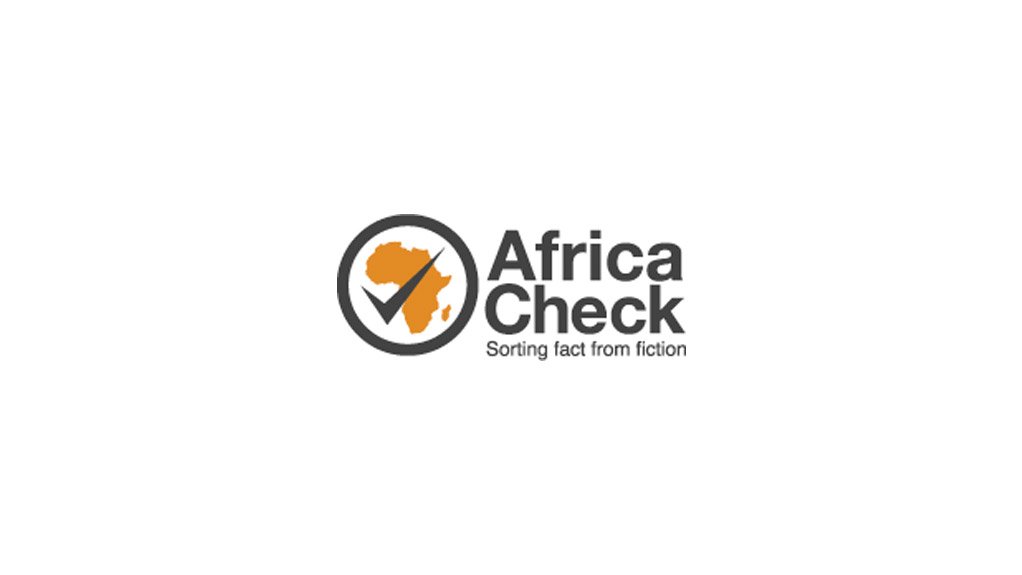In his response to the State of the Nation Address, Economic Freedom Fighters leader Julius Malema made a number of claims about education and child labour. Here are the ones that readers asked us to investigate.
Schools
The claim: “An average of 49% of the learners who should have sat for exams in 2014 dropped out of school.”
Our verdict: In the right ballpark
When the matric pupils who completed school in 2014 started grade two in 2004 there were 1,085,570 of them. By the time they sat to write their final exams in 2014, only 532,860 pupils remained.
This means that 51% of pupils dropped out before matric and 49% wrote their final exams.
Universities
The claim: “[O]nly 204,522 new entrant opportunities at universities were available this year. This is despite the fact that of the 532,860 grade 12 pupils who wrote matric in 2014, only 403,874 pupils passed with marks that allow them to study in tertiary universities either for a degree, diploma or a higher certificate.”
Our verdict: Correct on the numbers but misleading
The figures Malema referred to were released by minister of higher education and training Blade Nzimande in January 2015.
Nzimande announced that there were 204,522 places available for new students at 26 public universities. But this represents only half of all tertiary opportunities available in 2015.
In addition to the places available at universities, Nzimande announced that there were a further 81,000 places at technical and vocational education and training colleges, 85,900 apprenticeships and learnerships, 16,250 artisan opportunities and 37,423 learning programme opportunities.
The claim: “It is a fact that in the academic year 2015, 90,000 students applied for admission at the University of KwaZulu-Natal, and only 7,000 could be admitted and still the university cannot give financial aid to all academically deserving but needy students.”
Our verdict: Mostly true
Malema downplayed the number of places available at the university. Executive director of the corporate relations division at the University of KwaZulu-Natal, Lesiba Seshoka, told Africa Check that admission to the university was highly competitive.
“The University has received more than 90,000 applications for the 8,400 available spaces in the undergraduate academic programmes,” Seshoka said.
According to Seshoka 1,200 funding packages are set aside each year for first-year students.
“This is almost 25% of the financial aid funds that the university receives from [the National Student Financial Aid Scheme]. The rest of the funds are used to assist continuing students at second, third and fourth year levels.”
Child labour
The claim: “Your own government in 2013 reported that ‘the number of children affected [by child labour] still remains… at an estimated 821,000’.”
Our verdict: Not supported by the available data
This claim was also made by labour minister Mildred Oliphant in 2013 and included in a report on child labour released by the department in 2010.
The report summarises the findings of a Stats SA’s Survey of Activities of Young People. We contacted the department of labour for clarity on how they calculated the figure or where it was sourced from. At the time of publishing we had not received a response.
The Stats SA survey found that 2,733,000 children were involved in economic activities during the week prior to the survey in 2010.
For the majority of these children (2,612,000) this meant working for the benefit of their household, in activities such as subsistence farming.
The remaining children (121,000) were involved in “market production activities”. This included children working for someone for pay (including domestic work), running a business or helping unpaid in a household business.
Click here for the original article with click throughs
Researched by Kate Wilkinson
First published by Africa Check, a non-partisan organisation which promotes accuracy in public debate and the media. Twitter @AfricaCheck and www.africacheck.org.
EMAIL THIS ARTICLE SAVE THIS ARTICLE
To subscribe email subscriptions@creamermedia.co.za or click here
To advertise email advertising@creamermedia.co.za or click here











